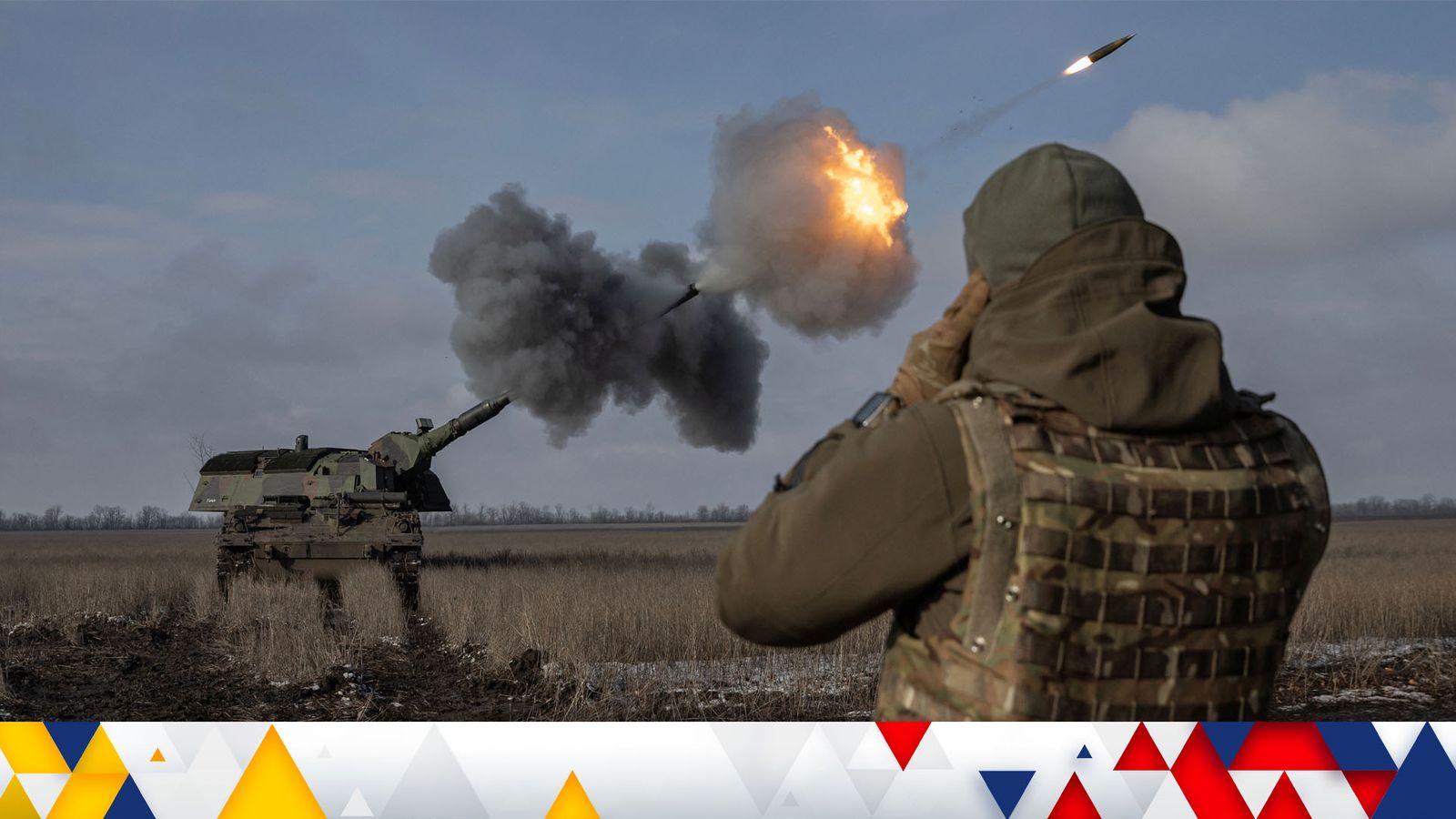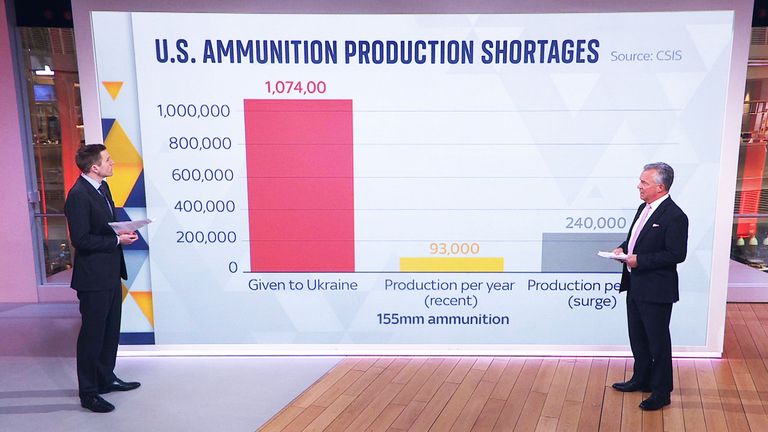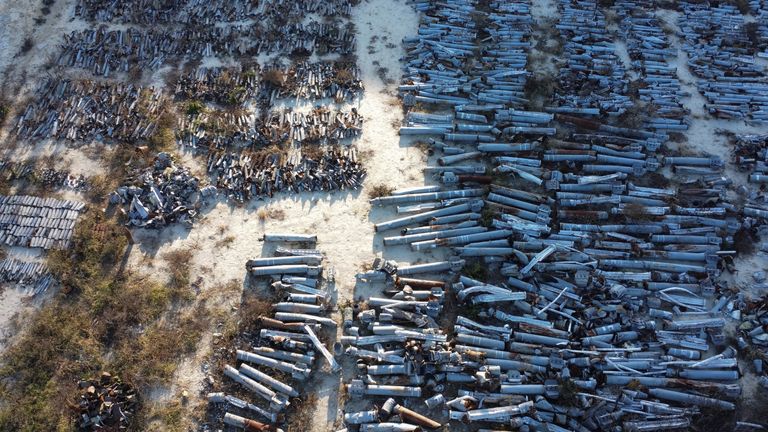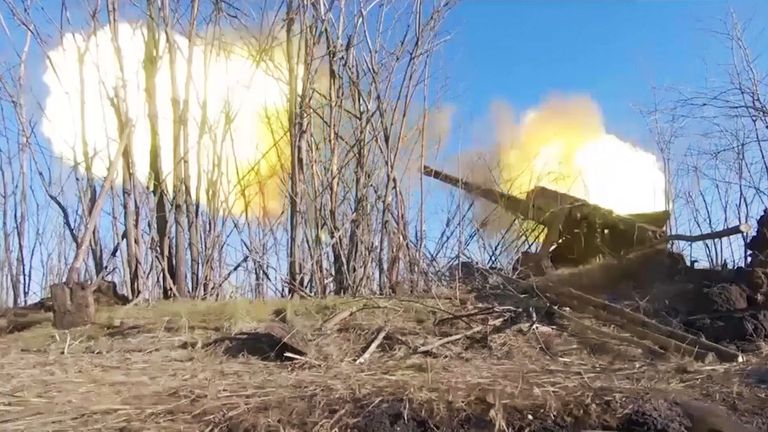Not since the huge battles of the Second World War has artillery been used so ferociously and intensively as it is now in Ukraine.
The conflict there has become bogged down in a gruelling war of attrition where the big gun is king.
At times, Russia has been firing a staggering 20,000 artillery shells a day.
Ukraine has been letting loose an average of 5,000 to 6,000 a day.
Ukraine war latest: NATO says weapon stocks ‘largely used up’
The impact on the landscape and lives of people living in Ukraine has been incalculable. Entire cities have been pulverised, and thousands killed.
And the impact on western stockpiles of munitions has been significant too.
Ukraine’s NATO backers are hard-pressed to keep up – the alliance secretary-general admitted as much this week. It has been a badly kept secret for some time now.
Cold war cuts, COVID-related supply issues, and a lack of raw materials have taken their toll. But there has not been the political will to produce more munitions. The legacy of all that is stark.
Some analysts believe NATO would not have enough supplies to fight Russia itself if it came to it now.
Germany is reported to have two days’ worth of ammunition supplies for instance if Russian tanks came rumbling over its borders.
Data surrounding munitions is hard to come by and classified. But what is clear is there are not enough and production needs to be ramped up. In arms factories from Pennsylvania to Germany’s industrial heartland, space is being cleared for new shell manufacturing.
But Russia is stepping up its war effort too, militarising its economy. The race is on to keep funnelling more and more munitions to the front lines in time for the next big offensives expected in the spring.



